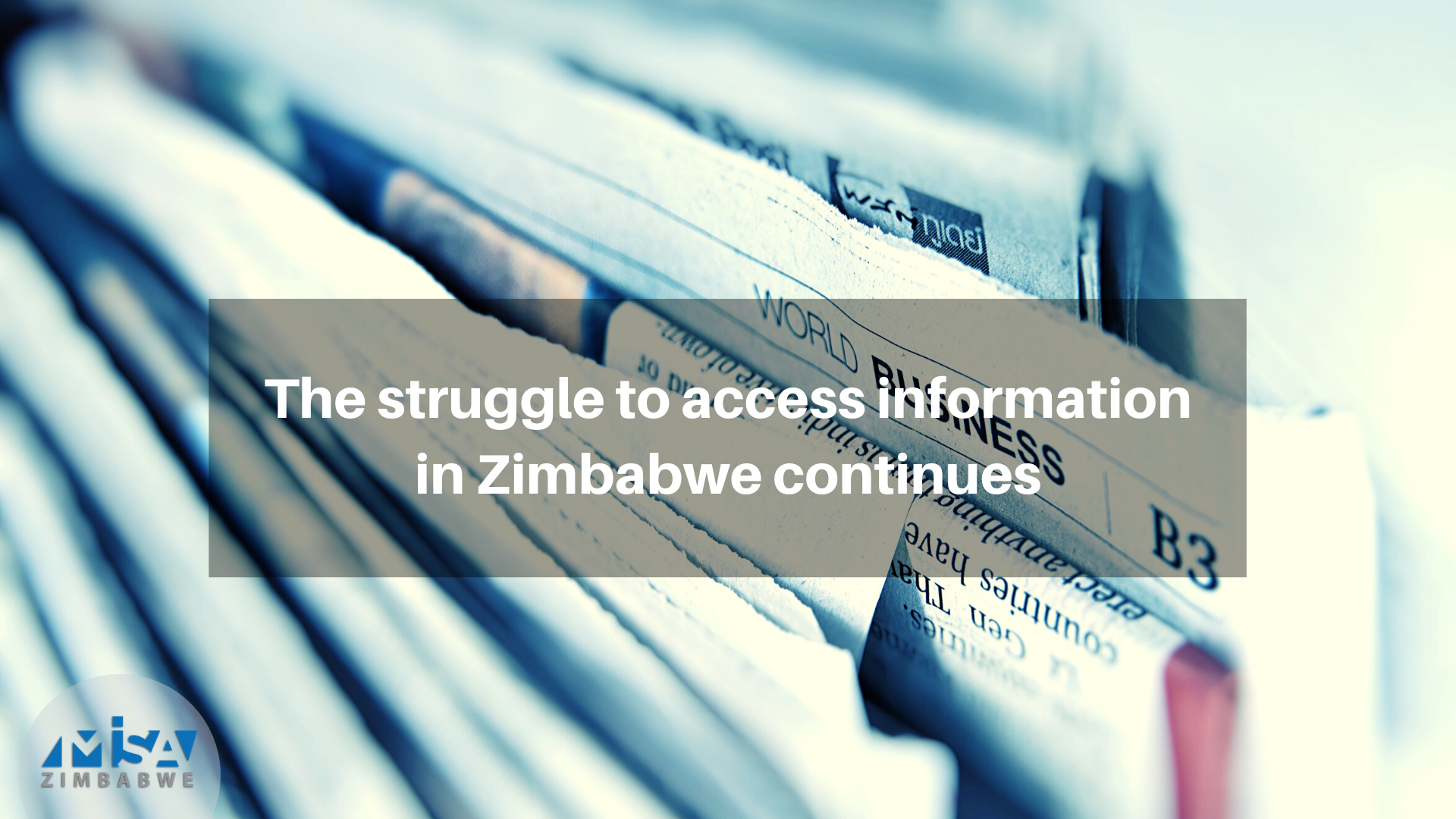MISA Zimbabwe notes with concern that highly questionable fees, which do not promote the exercise of rights, have been effected recently by different agencies.
The Zimbabwe Media Commission (ZMC) with the approval of the Ministry of Information, Publicity and Broadcasting Services in terms of Section 91 of AIPPA, has recently published the Access to Information and Protection of Privacy (Registration, Accreditation and Levy) (Amendment) Regulations Statutory Instrument (SI) 79 of 2020. Its enactment has repealed the 2014 regulations that were in place.
The Instrument provides for the accreditation of journalists which is pegged at ZW$120 for first applicants and ZW$80 for renewal while on the other hand US$200 is required for a local journalist working for a foreign media house.
The Statutory Instrument also provides for the registration of mass media services, community mass media services and also news agencies, of which the fees stand at ZW$15,000, $5,000 and ZW$8,000, respectively.
It is concerning that the Ministry of Information, Publicity and Broadcasting Services would approve such exorbitant fees by the Commission.
The segregation between local journalists, and local correspondents working for a foreign media house, is uncalled for as it has the potential of not only discriminating the latter but also limiting their access to information.
In view of the COVID-19 lockdown, MISA Zimbabwe is appealing to the government, the police and other state security agents, to allow journalists covering the coronavirus situation in the country to be allowed to conduct their lawful professional duties without hindrance pending renewal of their accreditation cards in line with the new fees.
The right to access to information is one of the rights that the Constitution of Zimbabwe guarantees through its expansive Bill of Rights.
In 2019, when Cabinet approved the repeal of the Access to Information and Protection of Privacy Act (AIPPA), this raised hope the country was on the right path towards cementing the full enjoyment of the right to access to information. The Act has notoriously been known for limiting the right to access to information as it was relied on to arrest and intimidate journalists, and, muzzle the independent media in Zimbabwe.
Several months later, AIPPA has not been successfully repealed as the proposed Freedom of Information Bill, Zimbabwe Media Commission Bill and the proposed Protection of Personal Information Bill, are yet to be enacted into respective laws.
The role of Chapter 12 institutions such as the Zimbabwe Media Commission is to promote and defend the enjoyment of human rights by the people of Zimbabwe. That is why the bulk of their funding comes from the fiscus, to ensure that the services that it provides to the public should at most be aimed at catering for administrative obligations, towards the achievement of their existential objectives.
Section 61 (1) of the Constitution is very clear that every person has the right to freedom of expression, which includes the freedom to seek, receive and communicate ideas and other information.
In addition, Section 62 (2) makes reference to the Zimbabwean media:
Every person, including the Zimbabwean media, has the right of access to any information held by any person, including the State, in so far as the information is required for the exercise or protection of a right.
Section 61 (3) of the Constitution provides that broadcasting and other electronic media of communication have freedom of establishment, subject only to State licensing procedures that—
(a) are necessary to regulate the airwaves and other forms of signal distribution; and
(b) are independent of control by government or by political or commercial interests.
Commercial interests, however, seem to be clogging the licensing procedures in Zimbabwe at the expense of the enjoyment of constitutionally guaranteed rights.
Not so long ago, SI 39 of 2020 on Campus and Community Radios was published displaying the same strategy of relying on high licensing requirements to cripple the establishment of community radios. ZBC also effected the Listeners’ Licences fees through SI 63 of 2020, which were just as ridiculously high.
This trend needs to be curbed before the right to free expression and access to information for the majority of Zimbabwean citizens is seriously compromised.
The Ministry is encouraged to firm up on its oversight role particularly where financially related regulations are being implemented. Clearly more emphasis is being placed on raising fees and economic benefits at the expense of constitutionally guaranteed rights.
The regulations equally do not deal with the broader concerns around issues of double taxation, whereby during elections, regulation of the media is taken over by the Zimbabwe Electoral Commission (ZEC) which imposes similar fees, yet both of these institutions are Chapter 12 Commissions, and should not be seen to be double taxing the industry.
Section 44 of the Constitution is very clear that the State and every person, including juristic persons, and every institution and agency of the government at every level, must respect, protect, promote and fulfil the rights and freedoms provided for in Chapter 4 of the Constitution.
The government should not be seen to be using the fee structures to technically undermine citizens’ right to information, expression and media freedom.
End
MISA Zimbabwe Communiqué









